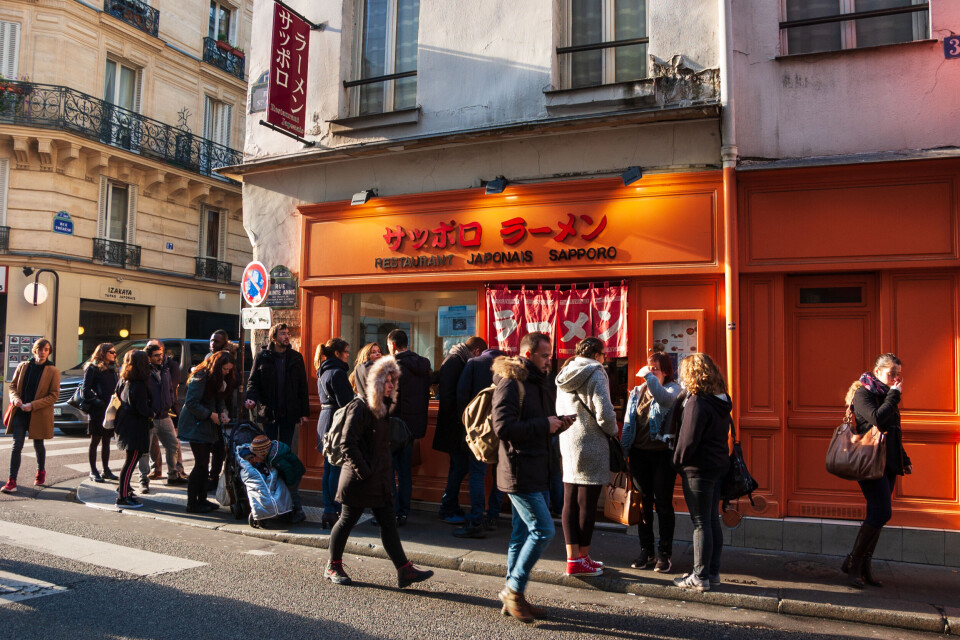-
Pistes closed, confinement orders: Alpine resorts deal with avalanche risk
Increased snowfall this weekend may cause further closures as busy school holiday season continues
-
Former French Interior Minister announces 2027 presidential candidacy
Bruno Retailleau recently asked prefectures to be tough on immigration
-
Ryanair axes Dublin-Rodez route but London connection retained
“We are disappointed but had no say in decision” say airport authorities
What is ‘Paris syndrome’ and does it really exist?
First identified in 1989, the culture shock that strikes some Japanese tourists is very real but overblown by the media

Over one million Japanese tourists visit France each year, with most going to the capital, a destination that has long been idealised in Japan. A small minority of these visitors feel strangely overwhelmed.
“The Japanese see Paris as the City of Light, the most beautiful city in the world, the capital of refinement and romance.
“A mix of Chanel N°5 commercials, Amélie Poulain and black and white photos of Robert Doisneau,” said author Eriko Nakamura in Nââânde, her book on the tribulations of a Japanese lady in Paris.
These stereotypes of a romantic French idyll were perpetuated more recently by the Netflix series Emily in Paris, which further raised the profile of the city, generated positive feelings and made more people want to visit.
Read more: Netflix’s Emily boosts Americans’ opinion of Paris, poll shows
However, each year 20 Japanese tourists are overcome by a peculiar state of dizziness, anxiety, vomiting, hallucinations, delusion, and increased heart rate, identified by psychiatrist Dr Hiroaki Ota in 1989 as Pari shōkōgun, or Paris syndrome.
“When we look at the number of psychiatric problems that afflict travellers, the same proportion of problems happen in North America and Asia, with 30% in each,” wrote Dr Ota in Paris Syndrome.
“However, 57% of problems that afflict Japanese travellers in Europe happen in France, and particularly in Paris.”
The syndrome strikes women in their 30s in particular, with several reports of women with no previous history of mental illness having to be hospitalised and repatriated.
Is Paris too ‘unfriendly’ for the Japanese?
The French capital was recently voted as the most unfriendly city in the world, ahead of Moscow, by readers of online travel guide Rough Guides.
The city has long struggled with the reputation of unfriendliness, with then-foreign minister Larent Fabius urging the city to be friendlier to tourists in 2014.
“The logic is simple. An unhappy tourist is a tourist who never comes back,” said Mr Fabius at the launch of a national campaign to make France more attractive to tourists.
Read more: The good, the bad and the ugly of customer service in France
For Dr Ota, the syndrome is in large part born out of the cultural gulf between French and Japanese communication styles
“Japanese people who are shy can feel that they are under attack by the impatience of the French.
“In Japan, it is considered vulgar to speak too much, but in France they have to fight to be heard,” he told Liberation in 2004.
“The French code of communication is direct,” he said. “Yes or no. It’s very clear. And you are expected to respond quickly.
“[In Japan] you don’t respond immediately, you think a lot first before answering a question,” he said. “But the French aren’t very patient.”
Is Paris too ‘dirty’?
While Paris can certainly be a mess when the waste collectors are on strike, the city is by no means more subject to pollution than other western metropolises.
The Quality of Life Index by City 2019 placed the city in 54th position for pollution ahead of Rome, Milan and London.
Indeed, the whole of Paris will go car-free on September 17 and smaller scale car-free days happen every first Sunday of every month.
A form of ‘culture shock’
In 2016 Bloomberg reported that Chinese visitors were also experiencing Paris syndrome.
However the numbers of people diagnosed with the condition are infinitesimal considering the 19.1m tourists visiting each year, down from a staggering 38m pre-Covid in 2019.
“We wouldn’t refer to it as a malady, so much as a form of culture shock,” Dr Ota told The Daily Beast in 2017.
“Young women in Japan have certain illusions about France, the French, and Paris,” he said.
“They see only the positive side [in media depictions], but never the negative side, and they tend to naively believe what the mass media portrays.”
This culture shock is by no means insurmountable: Paris is home to an estimated 20,000 Japanese expats, and since the 1970s has had its own ‘Little Tokyo’ on rue Sainte-Anne next to the Palais Royale.
Related articles:
French attraction moves to tackle problem over overtourism
France overtourism: five alternatives to the most popular destinations
Belle Epoque Paris lavatory is restored as tourist attraction
























